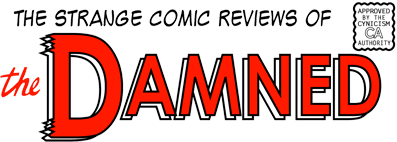

Regards From Serbia
By Aleksandar Zograf
I've been putting off this review for quite some time now, not out of any lack of desire to discuss the work in question so much as a dogged inability to conceive of anything appropriate to say. This is a very good book, and in places it may even approach a great book, but it seems as if this is one of those instances where the vocabulary of artistic criticism is really quite inefficient in attempting to describe the particular virtues at hand. This is a memoir, most importantly, with long sections of prose in the form of reprinted e-mails offered to supplement the narrative cartooning presented through the remaining two thirds of the book. The whole thing is obviously less in the way of a singularly conceived and narrative than a sequence of cumulative observations culled from disparate sources in order to create a kind of personal reportage on the matters at hand.

The matters at hand in this particular instance are the ongoing national crises in Serbia dating from the beginning of the 1990s through to the early years of this decade, a period of around 12 or 13 years. This is extremely difficult ground for it anyone to navigate, cartoonist or no: I don't consider myself an unintelligent person, and if pressed I would probably concede that I am at least a little bit more well-informed in these matters than your average citizen, and yet even after having read a considerable amount of material on the conflict there is still a marked complexity to the Serbian question that seems to stymie any well-intentioned attempts to interact with the material in a more manageable form. One of the most important aspect of Zograf's work is the way he so clearly inhabits the complexities of his own geopolitical situation: he is fully aware of the breathtakingly Byzantine density of the situation at hand, and this awareness contributes to the almost Kafka-esque absurdity of the unending scenes of war and political depravity. This, I think, makes for a much more affecting and effective narrative. It certainly creates in Zograf a particularly sympathetic protagonist for those of us in Western Europe and America who remain damningly detached from the incidents in question.

Although on first glance it may have seemed a bit jarring, I found myself warming to Zograf's style over the course of the book. There is something refreshingly handmade at work here, the work of an artist very clearly inhabiting his own style and having a good deal of fun making it up as he goes along. This is not to imply that his cartooning is necessarily roughshod or amateurish in places, but that Zograf consistently resists the development of a more polished style, hewing very close to an extremely naturalistic and intuitive sense of the comics form that seems to have more in common with old-school outlaw undergrounds than any strictly contemporaneous scene. Although I'm slightly hesitant to mention the comparison, the most apt literary analog seemed to me on a number of occasions to be none other than Franz Kafka, in terms of the way that Zograf's uniquely Mitteleuropean comic fatalism creates a claustrophobic, handcrafted environment of existential terror transliterated across a highly personal canvas.

Zograf's able application of abstruse visual metaphor makes even potentially problematic passages -- such as for instance the elaboration of extreme currency inflation and other aspects of seemingly dry economic privation -- hum with a surprising facility. The obvious touchstone here, even for those of us with little more than a layman's grasp of the contemporary European comics scene, is David B. Based on the timeline of both artists lives I have no idea whether or not Zograf would have been influenced by B., or whether or not the two artists merely represent disparate examples of parallel evolution, but there is something similar at the nucleus of their styles.

There's a lot to like in this book, and it's the kind of volume that you find yourself flipping through repeatedly even after you've read it from cover to cover, drawn to numerous passages that reward multiple rereadings. Zograf is by no means a perfect cartoonist, but in this story of his country's troubles he has found a narrative uniquely suited to his style. Whether or not this style came to him as a function of his particular narrative, or was merely a perfect coincidence in hindsight, is beyond my ability to say, but we should all be so lucky as to find in national tragedy such powerful inspiration for our own artistic expression.






No comments :
Post a Comment